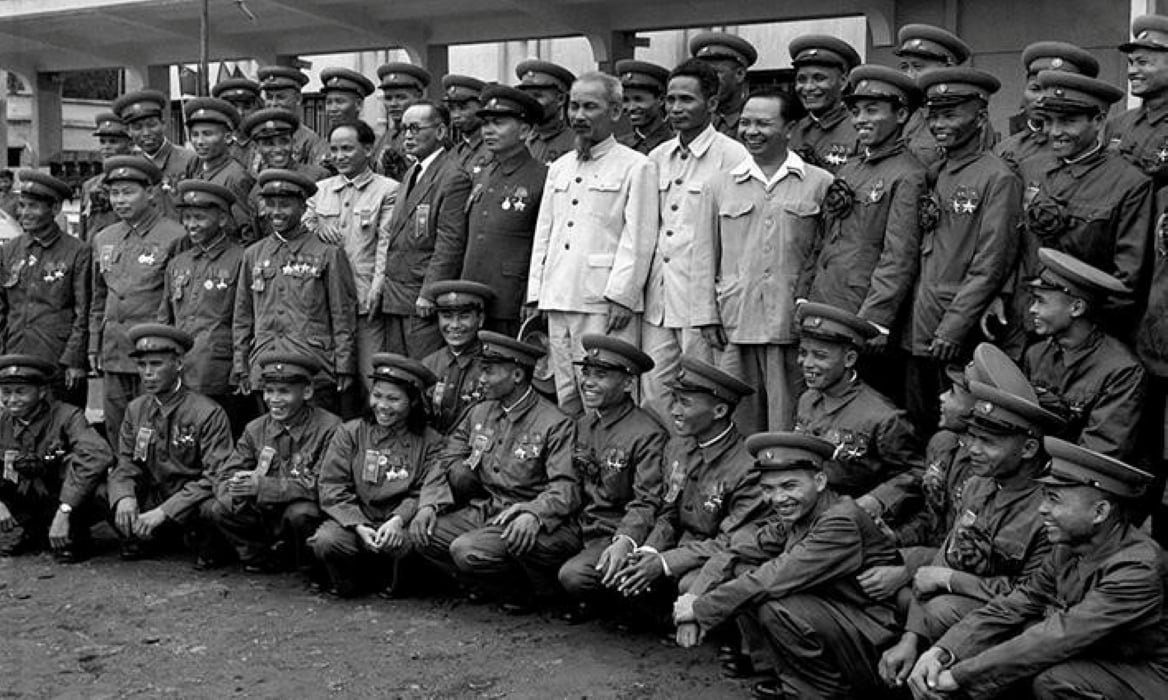
"The status of a political officer"
Right from the establishment of the Vietnam Propaganda Liberation Army (the predecessor of the Vietnam People's Army), besides the Team Leader (comrade Hoang Sam), there was also a Political Commissar (comrade Duong Mac Thach). On May 22, 1946, President Ho Chi Minh signed Decree No. 71/SL, establishing the organization of the political commissar system in the army. Accordingly, in building the army, political work is considered the soul; from the platoon level up, besides the military commander, there is a political commissar who takes care of the spirit and ideology of the army; the political commissar in each unit is responsible for helping the commander implement the orders of the command level, raising the spirit of the army.
As the political leader at the grassroots unit, the political commissar plays a particularly important role in improving the effectiveness and efficiency of party and political work, in order to promote the strength of the human factor and the political and spiritual factor in the army.
In a letter to the Political Commissar Conference , March 1948, Along with affirming the need for a team of political cadres in the army, President Ho Chi Minh especially emphasized the “qualifications” of those undertaking this important task: “The qualifications of political commissars have a very important influence on the troops. If the political commissar is good, the troops will be good. If the political commissar does not fulfill his duties, the troops will not be good” (1) ; towards the troops, the political commissar must be as close as a sister, as fair as a brother, and as understanding as a friend.
Accordingly, “friendliness”, “fairness”, and “understanding” are both working methods and styles as well as professional qualities of those who carry out ideological work with soldiers; they are considered “soft power” that has a natural, profound permeating and spreading effect on the entire perception, feelings, will, beliefs and actions of soldiers.
“Close as an older sister” means a blood relationship, always caring and helping each other in life. With an older sister, there is always a gentle, altruistic and nurturing quality, instructing the younger ones with care, gentleness and thoughtfulness. When having a heart “close as an older sister”, the political commissar will always be close, attached and in harmony with the cadres and soldiers; regularly caring and taking care of them wholeheartedly and thoughtfully; always creating all conditions for the soldiers to study, practice, strive to progress and mature.
With the role of “like an elder brother”, the political commissar in all activities of the army must be truly equal, fair, impartial, objective but also always clear-headed and decisive in all situations. Because, the “elder brother” possesses qualities such as courage, steadfastness, but also calmness, maturity, knowing how to “hold the scales of justice”, is a solid spiritual support for the army in all conditions and circumstances. Therefore, each political commissar needs to be courageous in thought, clever, flexible in communication and behavior, exemplary, harmonious in resolving relationships, knowing how to treat people fairly and delicately to contribute to building a positive, friendly, and harmonious atmosphere and mentality; truly a solid “support” for the entire unit.
With the requirement of “understanding like a friend” towards soldiers, each political officer must be constantly close, intimate, and not create “distance” with the soldiers. Each political officer must truly be a close “friend”, grasping the individual’s psychological characteristics, family circumstances, social relationships, knowing how to care about the material and spiritual life, understanding the thoughts, feelings, and aspirations of the soldiers. By doing that, each political officer will help the “cadre - soldier” relationship become more and more attached and strong.
Thus, “intimate” is a characteristic expression of emotional depth and attachment; “fairness” reflects the attitude of behaving and resolving relationships with soldiers in an objective, honest, humane, and compassionate manner; “understanding” indicates the capacity, level of approach, ability to judge, consider, and evaluate soldiers scientifically, with the right person and the right job.
The person holding the "soul" in the basic unit in the army
The team of political commissars is the one who holds the "soul" of the basic unit in the army, because they maintain the political orientation in all activities of the unit, making the officers and soldiers in the unit always strive to have a steadfast and firm political stance, absolutely loyal to the goals and ideals of the Party, ready to receive and complete all tasks well.
Currently, political commissars are assigned to the company, battalion and equivalent levels in military base units; as political leaders, secretaries of Party committees and Party cells, they play an important role in building clean and strong Party committees and Party cells with high leadership capacity and fighting strength. As political leaders, the team of political commissars is responsible for all Party and political activities in the unit; at the same time, they contribute to enhancing the effectiveness and efficiency of the commander's management, and together with the commander, directly manage, educate and train cadres and soldiers, build strong organizations, and successfully carry out all assigned tasks.
President Ho Chi Minh always placed the right position and role of the political commissar in ideological work. He pointed out: "The political commissar must clearly know and report to his superiors the quantity and quality of his troops" (3) . Ideological work for the troops must not be carried out by "orders" but by the "heart" of the cadre, through closeness, harmony, true respect and love for the troops. Only then will the troops respect and consider the leaders and commanders as their relatives; thereby, they will boldly express their thoughts, feelings, and aspirations; at the same time, they will devote all their abilities and strength to contributing to the unit. If the cadres lack interest, show signs of bureaucracy, command, and distance..., the troops will not dare to express their thoughts, accept orders in a "forced" way, the results of performing tasks will be low, and there will even be negative acts of resistance, which can lead to violations of the law and discipline.
To carry out ideological work well for soldiers in the army, President Ho Chi Minh required the cadres, directly the political commissars, to be truly close to, love and care for the soldiers: “From the squad leader up, from the Commander-in-Chief down, we must take care of the material and spiritual life of the team members, must see how the team members eat, must understand the wishes and questions of the team members. If the soldiers have not eaten, the cadres must not say they are hungry. If the soldiers do not have enough clothes to wear, the cadres must not say they are cold. If the soldiers do not have enough accommodation, the cadres must not say they are tired” (4) .
To complete the task, each political commissar must be active and proactive in carrying out ideological work, always be sharp and one step ahead, to build cadres and soldiers with a strong political stance, steadfast in the goal of national independence and socialism; have high awareness, motivation, attitude and responsibility in carrying out tasks; always be proactive, creative, united, resolute in fighting and refuting wrong and hostile viewpoints and ideologies, contributing to protecting the Party's ideological foundation, preventing the risk of "self-evolution" and "self-transformation", building grassroots units that are truly ideological "fortresses", inviolable in all situations.
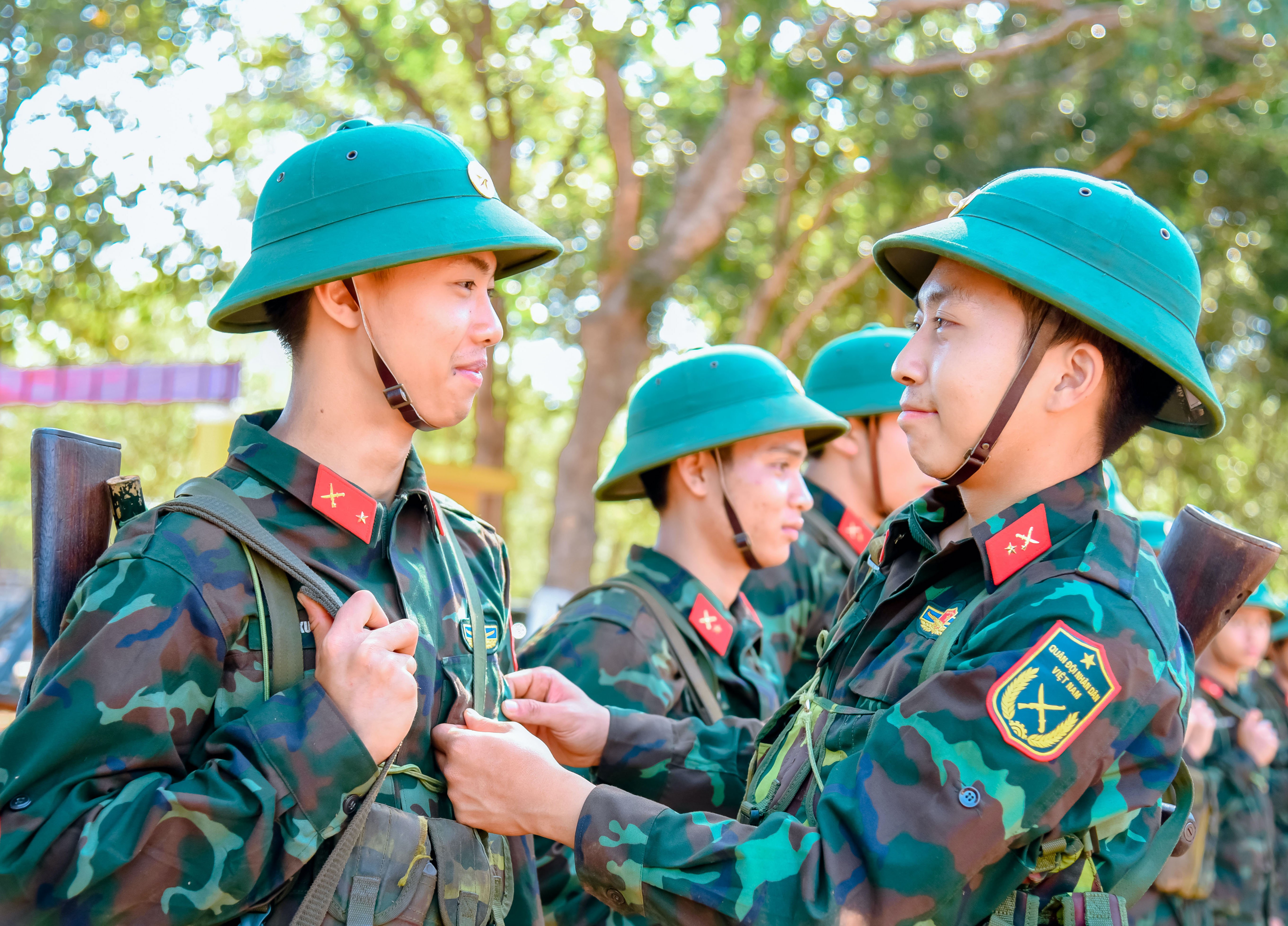
Promoting the role of political commissars at grassroots units in the current army
Firstly, promote the role of political commissars in political education, ideological orientation, and building political capacity for cadres and soldiers at grassroots units.
Political and ideological education is the regime and content of Party committees, Party organizations, and political agencies at all levels, regularly and directly by political commissars - the political leaders in charge of the unit, which is of primary importance to the building, development, and perfection of the qualities and personalities of revolutionary soldiers. The 13th National Party Congress determined: "Continue to strongly innovate the content and methods of ideological work in a proactive, practical, timely, and effective direction. Grasp, correctly forecast, accurately orient, and properly and promptly handle ideological issues in the Party and in society. Focus on grasping and orienting public opinion, ensuring ideological unity in the Party and high consensus in society" (5) . As the secretary of the Party Committee, Party cell, political leader, and person primarily responsible for carrying out Party and political work in the unit, the political commissar must, together with the Party Committee and commander, develop a plan and synchronously and comprehensively implement political and ideological education work for all soldiers under his/her authority. Focus on effectiveness and suitability for each target; regularly update new knowledge for officers and soldiers. Thereby, it will directly contribute to fostering all soldiers with strong political will, motivation to study, train, and practice properly in performing assigned duties and tasks.
Second, promote the role of political commissars in flexibly and creatively applying measures to conduct ideological work at grassroots units.
The team of political commissars are the ones who directly eat, live and work together, are the "sisters, brothers, friends" of the army, so they must regularly monitor, analyze, review, forecast and orient the ideology of the officers and soldiers under their authority, especially those with ideological problems. Therefore, it is necessary to promote the role of the team of political commissars in grasping and accurately forecasting the ideological problems of the army; through the process of performing tasks at the unit, the political commissar must be really close to the army, listen to their thoughts, feelings and aspirations to promptly resolve the ideological problems that arise. In addition, the political commissar must proactively assess and classify the ideology of the officers and soldiers under his authority, through classification, they will "zone out" the soldiers with ideological problems to focus on management, help them overcome all difficulties, and strive to complete their tasks well. To perform their role well, each political officer must truly be exemplary in ethics and lifestyle, "set an example" in words and deeds, always be close to and closely associated with the troops, and truly be a solid spiritual "support" for cadres and soldiers to trust, listen to, and follow.
Third, promote the role of political commissars in fighting against wrong views; proactively manage participation and interaction on social media of soldiers at grassroots units.
This solution is very important, if done well, it will create "resistance" for soldiers against external impacts. Accordingly, the political commissar is the person in charge of politics, directing "Force 47" to proactively and actively participate in protecting the Party's ideological foundation, fighting against erroneous and hostile views. Regularly review and grasp the quality of internal politics, evaluate and classify ideology; proactively foster and improve the capacity to conduct education, management, consulting, psychological and legal assistance and methods to solve ideological problems arising for the team of managers at all levels in the unit. In the context of the Fourth Industrial Revolution, it is inevitable that soldiers participate and interact on the internet and social media. Through mass media, the internet, social media (Facebook, Zalo, Tiktok...), political commissars increase the dissemination and spread of positive information, fight against and prevent negative, incorrect, hostile and reactionary information and viewpoints. At the same time, this is also an important information channel to grasp the thoughts of soldiers through interactions, sharing and comments, thereby having timely forecasts and measures to prevent unhealthy ideological manifestations, especially the negative impacts from the negative side of the market economy and current social evils.
President Ho Chi Minh's requirements for "Qualities of a political commissar" are core issues in the qualities, abilities, methods, and working style of a political commissar. To fulfill his/her tasks, each political commissar at the grassroots unit must constantly study, cultivate, practice, and strive; set an example in ethics and lifestyle, set an example in words and actions, and harmoniously resolve relationships; regularly care for and closely follow the unit, truly be a "brother, sister, friend" and a solid spiritual "support" for the troops, and be a shining example for cadres and soldiers in the unit to trust, learn from, and follow./.
--------------------------
(1), (2), (3) Ho Chi Minh: Complete Works, National Political Publishing House Truth, Hanoi, 2011, vol. 5, p. 484
(4) Ho Chi Minh: Complete Works , op. cit., vol. 7, p. 76
(5) Documents of the 13th National Congress of Delegates, National Political Publishing House Truth, Hanoi, 2021, vol. I, p. 181
Source: https://tapchicongsan.org.vn/web/guest/nghien-cu/-/2018/1080603/van-dung-loi-can-dan-cua-chu-tich-ho-chi-minh-ve-%E2%80%9Ctu-cach-nguoi-chinh-tri-vien%E2%80%9D-vao-cong-toc-tu-tuong-o-don-vi-co-so-quan-doi-hien-nay.aspx




![[Photo] Fireworks light up the sky of Ho Chi Minh City 50 years after Liberation Day](https://vphoto.vietnam.vn/thumb/1200x675/vietnam/resource/IMAGE/2025/4/30/8efd6e5cb4e147b4897305b65eb00c6f)
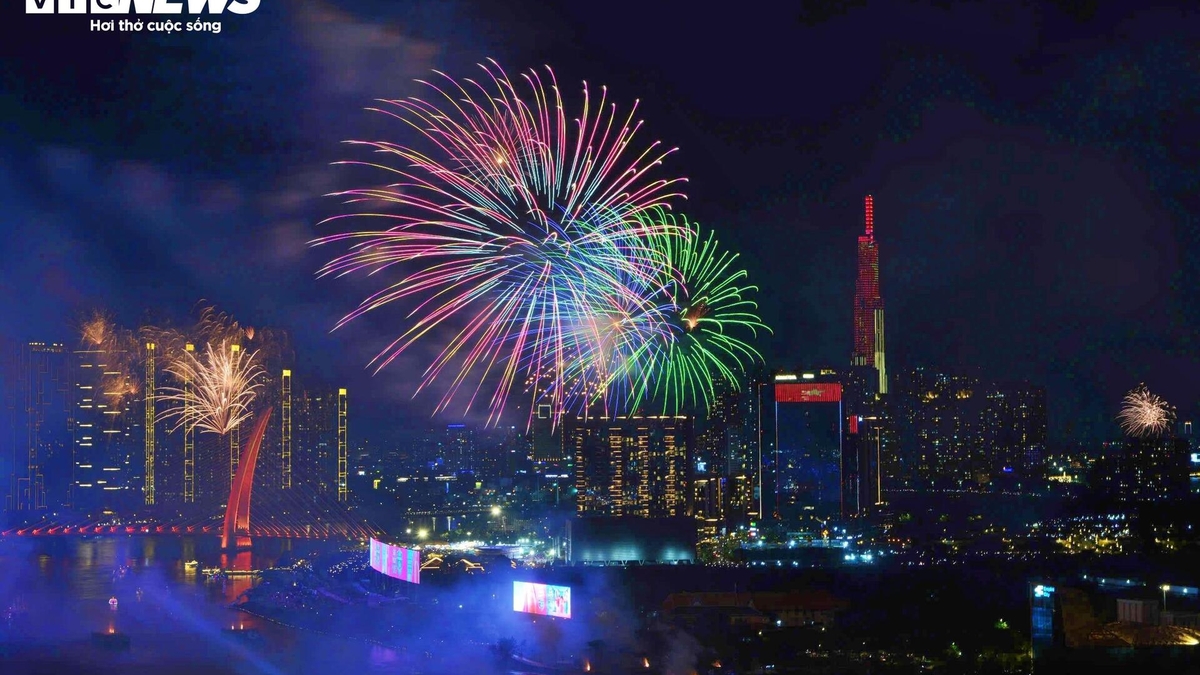

![[Photo] Feast your eyes on images of parades and marching groups seen from above](https://vphoto.vietnam.vn/thumb/1200x675/vietnam/resource/IMAGE/2025/4/30/3525302266124e69819126aa93c41092)

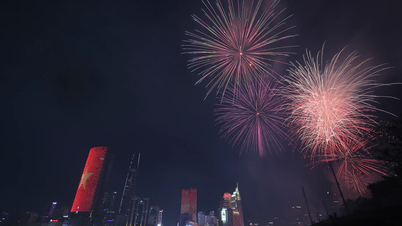


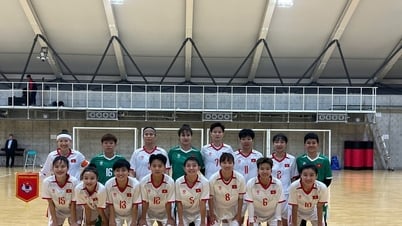
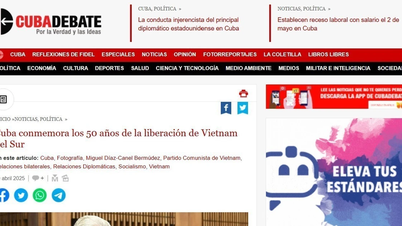





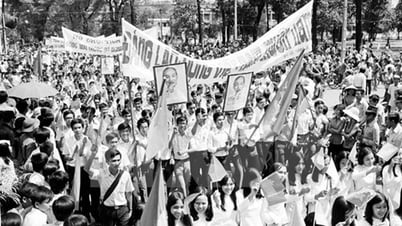





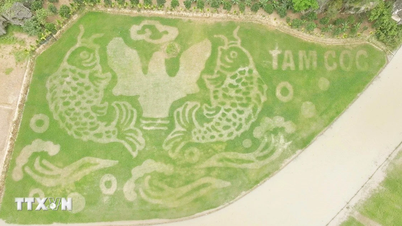







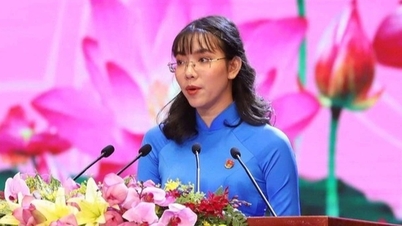





















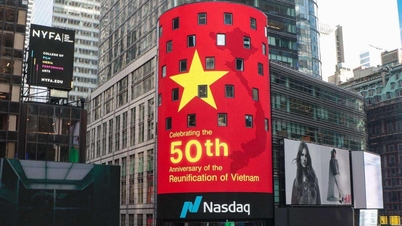

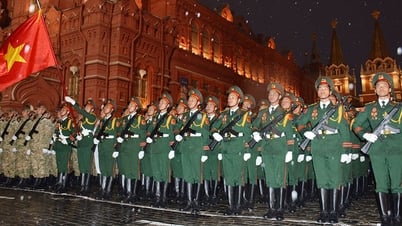

















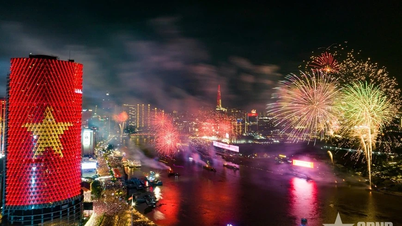
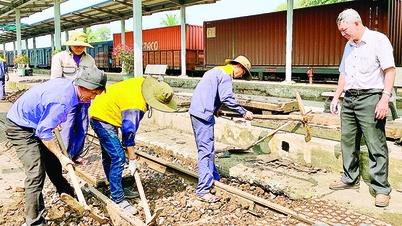












Comment (0)